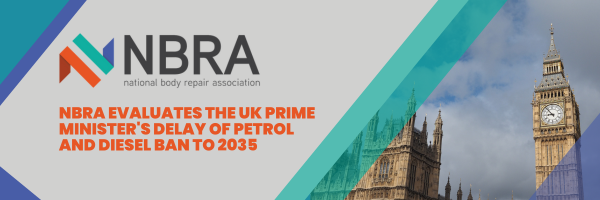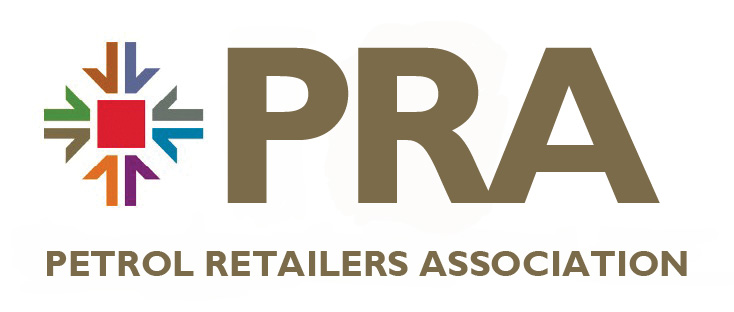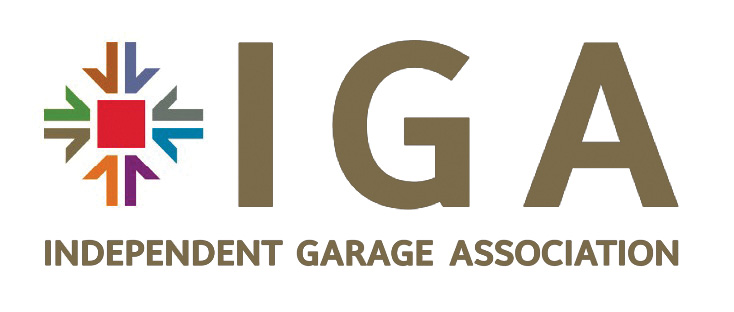[vc_row type=”in_container” full_screen_row_position=”middle” column_margin=”default” scene_position=”center” text_color=”dark” text_align=”left” overlay_strength=”0.3″ shape_divider_position=”bottom” bg_image_animation=”none”][vc_column column_padding=”no-extra-padding” column_padding_position=”all” background_color_opacity=”1″ background_hover_color_opacity=”1″ column_link_target=”_self” column_shadow=”none” column_border_radius=”none” width=”1/1″ tablet_width_inherit=”default” tablet_text_alignment=”default” phone_text_alignment=”default” overlay_strength=”0.3″ column_border_width=”none” column_border_style=”solid” bg_image_animation=”none”][vc_column_text]
The National Body Repair Association (NBRA) expresses its concerns over the recent announcement by the UK Prime Minister to postpone the ban on new petrol and diesel vehicles from 2030 to 2035. While the economic realities facing the UK cannot be ignored, it is important to recognise that delaying essential environmental initiatives can have its own set of economic and ecological repercussions.
Wayne Mason-Drust, NBRA’s board member said:
“The path to achieving net-zero emissions is undeniably urgent, but it is crucial to navigate this journey without damaging the very businesses that are key to making this transition successful. Our members, many of whom have already invested substantially in preparing for the 2030 deadline, now face uncertainty and potential financial setbacks.
By shifting the goalposts, the government puts at risk the investments made by businesses in our sector who took early steps to adapt to a greener automotive landscape. These businesses now face an extended period before they can see a return on their investment, raising questions about the economic viability of their proactive efforts.
To ensure that we do not compromise either our environmental objectives or the economic health of our industry, we suggest specific financial support, such as subsidies or grants, for those NBRA members who have already begun transitioning to EV-focused business models.Additionally a graduated approach to discouraging petrol and diesel vehicle sales, perhaps through incremental EV grants, can stimulate a more manageable, gradual shift towards electric vehicles. Increased public investment in EV charging infrastructure is vital, making it easier for consumers to adapt and thus quickening the overall pace of transition.”
Mason-Drust concluded:
“Achieving net-zero emissions remains an imperative, but it is crucial to make this transition in a way that supports, rather than undermines, the businesses actively involved in this change.
The NBRA is open to collaborating with the government to find a mutually beneficial path forward that serves both our environmental and economic interests effectively.”
[/vc_column_text][/vc_column][/vc_row]









